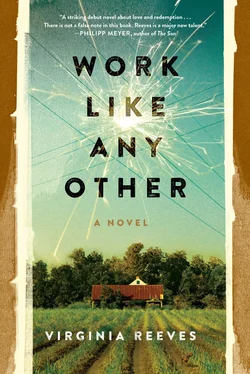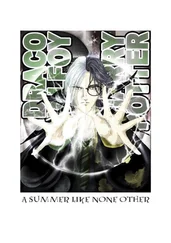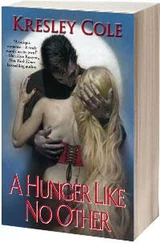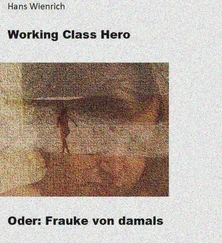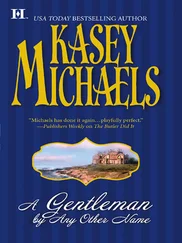Maggie comes to inspect. She brings her nose close to the body and huffs loudly, sending dust into the air. She raises her head to me, indifference on her face. The rat is so past life, it doesn’t register as anything more than ground, something to dig loose in the making of a den. I scoop it up with its surrounding dirt and deposit it in the wheelbarrow.
Maggie paws at the ground. I’ve blocked her way in.
“Give me a minute, girl.” I chain her while I finish. “Wait.”
She won’t listen, pulling against her chain.
Finally, I have the trench dug, and with one of Taylor’s spurned blankets against my side, I belly-crawl my way under the shed. The ground is cool and rich as turned soil in the spring, the scent and lick of short winter days bound up in that dirt, seeping out with every fresh turning until the high-summer sun parches the rows dry.
The warmth of the puppies crowds my face.
It’s difficult to bring an arm round the front of me, a hand to close round these small, whimpering beasts. A muscle near my right shoulder blade squeezes itself tight in protest, a stiff cramp that takes my breath. In the movement, my head strikes the sharp edge of a shed beam, hard enough to bring blood. There is no reason to remove these dogs from this space. But, still, I load them one by one onto the blanket, their round bellies and tiny ribs stirring the pain from my back and arm. I grope in the semidark to be sure I’ve collected them all, my hand running over the round nest, its edges gone dry with age. Maggie is a mess of noise by my feet.
“Here we come,” I tell her.
The pups are tiny things, half the size of the rat I found, and lighter in color than their mother. Their heads are golden tan, their snouts dark and wrinkled. Their ears are the size of my thumbnails, small flaps on the sides of their heads, not even to their lips, though I know they will dangle to their shoulders once they’ve grown. They squirm and writhe in their pile, a crawling mass of need, hungry.
I carry them into the shed and set Maggie free. “They’re right in here.”
The doorway is large and open, the pups easy to see, but Maggie returns to the burrow, laying her body flat to edge back under. Marie once told me about particular birds that won’t accept their offspring once they’ve taken on the scent of humans. This surely can’t apply to bloodhounds, these animals we’ve bred to serve us, but I’m worried all the same.
Maggie scratches and paws under the shed. I hear her moving under there, the shuffle of her breath.
I know these pups won’t hold without her. I think of the chapters—“Orphaned Pups,” “Hand-Feeding Pups,” “Whelping Your Own Pups”—we will need goat’s milk and bottles. And even if we get them to eat, we will still lose several. That’s what the books say. I will not be able to tell Taylor it’s his fault, that we should’ve left the dogs alone. I’m fearing their deaths already, fearing the regret and guilt that is building in my stomach, in my back, in the cut on my head, the hardening blood in my hair.
But then Maggie emerges, the nape of a pup’s neck held tight in her teeth. She passes me without care or notice, returning the lost pup to the others in their pile. She digs at the blankets and encircles the pups, a wall of a house. They crawl to her teats and settle into eating — all seven. Alive, and their mother, too, this dog in all her transformations, she is still there, whole, and the thought makes me ache for Marie, going again to that Saturday morning in March when Gerald was born in our marriage bed, in our village house, the resident doctor there to catch him.
The boy was slippery and bloody, and the doctor handed him directly to me. “He’ll go to his mama soon enough. We just need to do a little cleanup here. Why don’t you take the child out to the kitchen, Roscoe?”
The babe’s eyes were squeezed shut and he was wrinkly as an old man. I dampened a rag at the sink and set to removing the junk from his face. It made him howl.
“Shush,” I whispered, trying to rock him in my arms. I didn’t know how to do it — how to soothe anything that small.
I worried about Marie hearing the noise and insisting on rushing through whatever the doctor had to do, so I took the baby outside into the clear spring day, a more fortunate time to be born than July. I stood on our small front porch, hoping for a woman to hear the baby’s noise and come to my aid.
Nettie Williams, our next-door neighbor, came within minutes.
“Oh, Lord! The baby’s come!” she shouted. “Let me see the little thing.”
I was happy to settle him into her arms.
“Why he’s not even cleaned up yet. Has something gone wrong?”
“No.” The thought hadn’t occurred to me at all.
But Nettie Williams gave the baby back quickly. “The babe’s ruddy and loud, sure enough healthy. I’ll go inside and see about that bride of yours.”
In that moment, I wasn’t concerned for Marie, only for this wailing thing in my arms, this sloppy infant in need. I settled into the one rocker we had, its joints squeaking under my weight, and I bent the pointer finger on my left hand so that his small mouth could close round the knuckle, far less dirty than the fingertip. As soon as my knuckle met his mouth, he stopped his fit and sucked away contentedly at my empty skin.
Marie was far from us then. And we were far from her.
And now Maggie is here in this shed with her seven pups, all of them in need of nothing from me.
“ONEof the females is missing,” Taylor says to me on the pups’ eighth day. He sets me to searching, and eventually I find it along the east side of the run where the grasses grow tall, winding their way through the wire, creeping along the edge of the dirt, hearty enough to thrive in this dog-heavy ground. Midway down, the dog’s small head rises barely higher than the dirt, slightly covered by grass tufts. It’s in a hole Maggie must have dug.
The warmth of the pup’s body tells me it’s not yet dead, and when I bring its head to my ear, I can make out its breath, weak and ratty. It is too light, and its head cocks to the side, something wrong in its jaw that I hadn’t noticed before. It needs to die, so I press my palm against its snout, the shortest fight left, a tiny reach of the legs, a shake in the neck — not enough to constitute a struggle.
I return it to its hole and shout for Taylor.
“Maggie must’ve known,” he says.
I dig the pup’s grave right where Maggie started it, deep enough to keep out the scavengers.
Maggie walks outside into the sun, off to a corner to relieve herself. Her spine ridges out of her back in a notched line, her ribs tracing down her sides between deep furrows. Her tail is tucked between her legs, her ears dragging on the ground. Those long ears are dusty, all that silk gone gummy like horsehide under a saddle. Whelping doesn’t suit her, and I wish I could free her from it. She should be tracking someone down. She should be tied to my waist, straining and braying, those ears scooping a convict’s scent toward her nose. Ears like that have a job to do, and it has nothing to do with nursing pups.
Taylor tells me to spend the remainder of my day in the library. “Go on over to your books, Martin. Get your mind someplace else. That dirt’ll be dry come tomorrow.”
“I haven’t worked the other dogs yet.”
“Get.” His hand finds its way to my good shoulder. “Go on. I’ll expect you early tomorrow.”
I leave the barn with its smells of bone and leather, and I walk that red dirt back to the wall, where I’m let through with little notice. The yard is quiet, every man off to his job, and I’m taken by the loneliness of the place. I pass the chapel on my way to the library, and Chaplain is out front. He’s watering the flowers he’s planted. I suppose we need flowers.
Читать дальше
